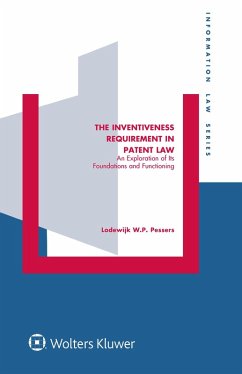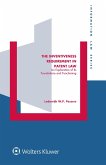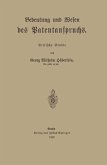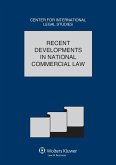Although the pivotal role of the inventiveness requirement in patent law is broadly accepted, it has long remained an ill-defined concept, and in current debates the question is often raised whether the requirement is capable of functioning as an adequate 'gate-keeper'. By providing a broad and historical perspective on the inventiveness concept in patent law, this groundbreaking work lays a very thorough conceptual basis for further and more in-depth discussions on current standards of inventiveness.In a method guided by geography and chronology, the author weaves developments in numerous countries - focusing primarily on the United States, the United Kingdom, Germany, and the Netherlands - into a fullscale analysis of the inventiveness concept. Among the questions raised and examined are the following:- How do industrial-economic considerations influence the requirement?- Are there different doctrinal 'schools of thought' that can be distinguished?- Should the current requirement stay in close relationship with its predecessors or is it fundamentally different?- Which socio-economic and political forces have influenced or diverted the evolution of the requirement?- What are the most conspicuous similarities and dissimilarities among the jurisdictions under examination? And how can they be explained?- To what extent is the 'inventive step' requirement applied in a uniform manner within the European Patent Convention area?- To what extent has the enormous recent growth of patent grants been brought about by relaxation of the inventiveness requirement?This book provides crucially important fundamental commentary for lawyers, jurists, and scholars coming to grips with a hugely complex legal phenomenon: the dramatic growth worldwide in recent years of patents as instruments for the protection of industrial property. Particularly welcome in these times of intensifying scrutiny of patent law, this incomparable analysis will quickly become a cornerstone resource for intellectual property lawyers, patent officers, in-house counsel in multinational manufacturing companies, and other interested practitioners.
Dieser Download kann aus rechtlichen Gründen nur mit Rechnungsadresse in A, B, BG, CY, CZ, D, DK, EW, E, FIN, F, GR, HR, H, IRL, I, LT, L, LR, M, NL, PL, P, R, S, SLO, SK ausgeliefert werden.









